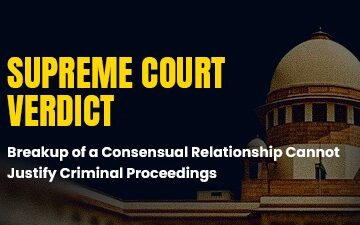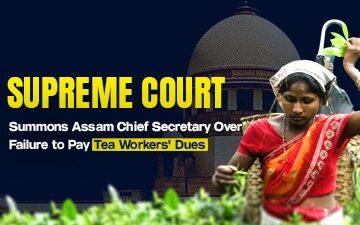The Ministry of Law & Justice has made it clear, as an important clarification for Notaries appointed by the Government of India. According to the official memorandum issued by the Department of Legal Affairs (Notary Cell), it has been made specifically clear that Notaries are not permitted to perform or solemnise marriage and divorce deeds as they are not Marriage Officers.
Understanding the Legal Role of Notaries
Under the Notaries Act, 1952 and the Notaries Rules, 1956, Notaries have very well-defined roles, where primarily they authenticate documents, witness declarations, and administer oaths. These legal frameworks clearly indicate the scope of a Notary is far removed from performing marriage or divorce deeds.
The Ministry has issued a stern warning to the effect that Notaries performing such unauthorized actions is nothing but professional misconduct. Only government appointed Marriage Officers are legally empowered to register marriages and deal with divorce cases.
Judicial Sanction: Orissa High Court and Supreme Court Opinions
The position in the law is further supported by judicial decisions. In Partha Sarathi Das v. State of Orissa, the Orissa High Court clarified that Notaries cannot act as Marriage Officers, thereby upholding the stand of the Ministry. In Bhagwan Singh v. State of U.P., the Supreme Court also settled the principle that failing the provisions of the Notaries Act means that one has rendered himself ineligible to become a Notary, thereby underlining the importance of conformity to the legal obligations stipulated.
Consequences of Misconduct for Notaries
Though on the statute book, certain Notaries have, however been found to execute marriage-related documents, even a decree of divorce and issue certificates certifying marriage. Such actions, says the Ministry will precipitate serious legal connotations. Rule 13 of the Notaries Rules, 1956, are also applicable towards disciplinary action against such Notaries; removal from the Register of Notaries is one of the possible consequences.
This would make them unfit to practice as a Notary and cause irreparable damage to their professional prestige. The Ministry’s letter is thus a reminder that any act of commission or omission by a Notary that is contravening the Notaries Act or Rules is considered misconduct and legal consequences may be attached.
Legal Compliance and Professional Integrity
It serves as a reminder, but not only of the scope of the Notaries’ duties, but a call for upholding the integrity of the legal system. It is key that notaries remember and avoid unnecessary dealings such as certifying marriages or executing divorce deeds outside their scope of undertaking.
This is a most essential update for legal professionals and Notaries to ensure compliance with the Notaries Act, 1952, and the Notaries Rules, 1956. The regulations followed by a Notary in his practice can ensure the professional credibility of a Notary also and it promotes the transparency and reliability of the legal sector.
Conclusion
The clarification by the Ministry of Law & Justice marks an important step to ensure that Notaries in India perform their roles within the defined boundaries under law. Execution of marriage and divorce deeds are not within the authorized functions of a Notary, and any such actions fall under professional misconduct with consequences in law as well. Legal professionals and Notaries are advised to stay updated on these regulations to avoid any issues and maintain the integrity of their work.
CLICK HERE TO READ THE FULL JUDGEMENT : Notaries Executing Marriage and Divorce Deeds: A Clear Case of Misconduct – Ministry of Law & Justice Clarifies


